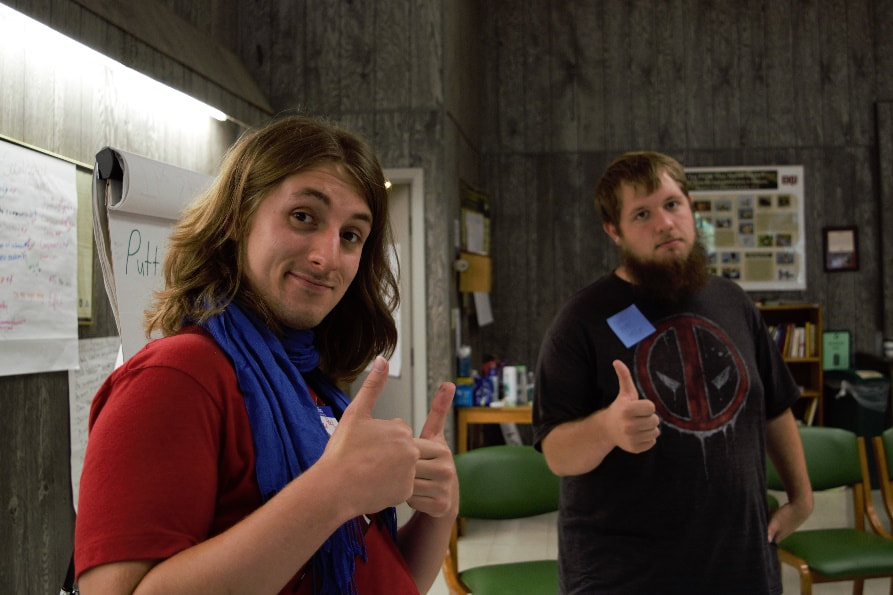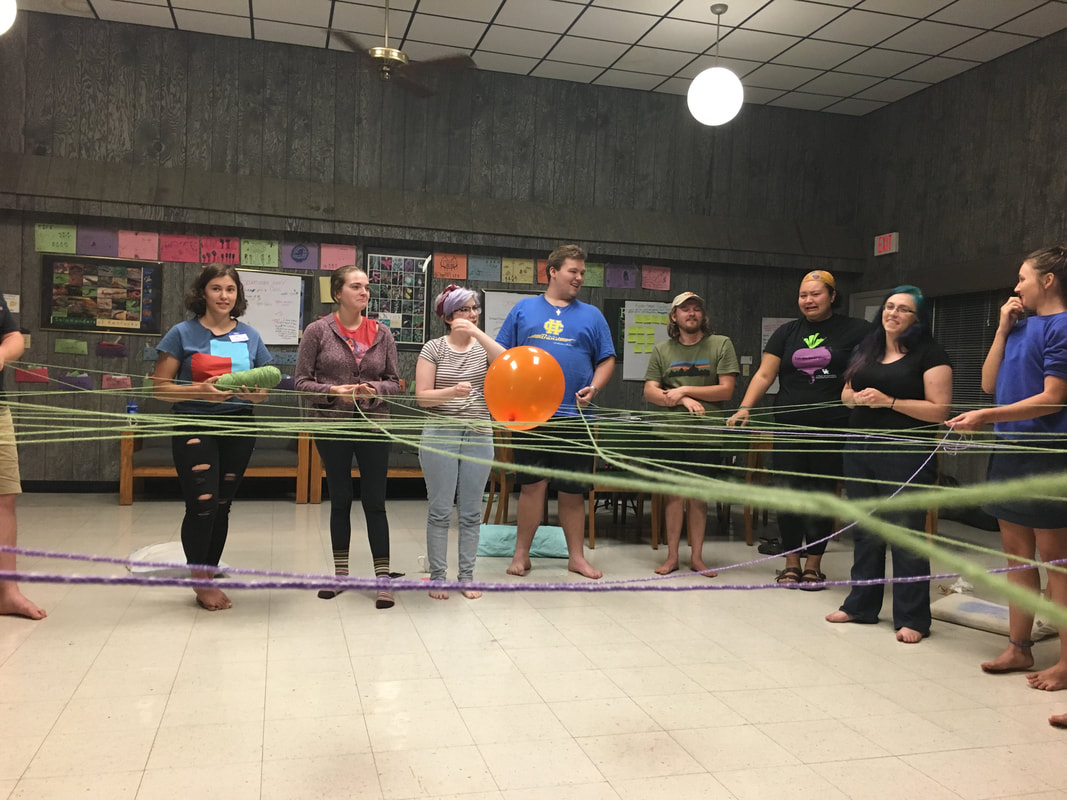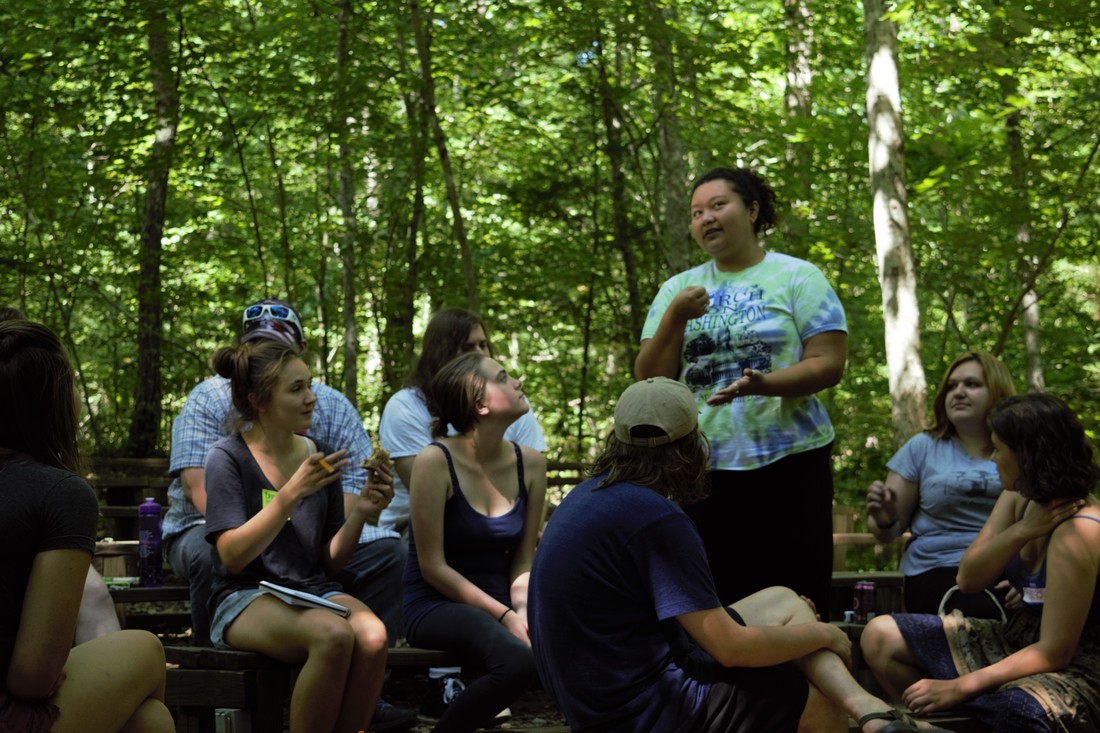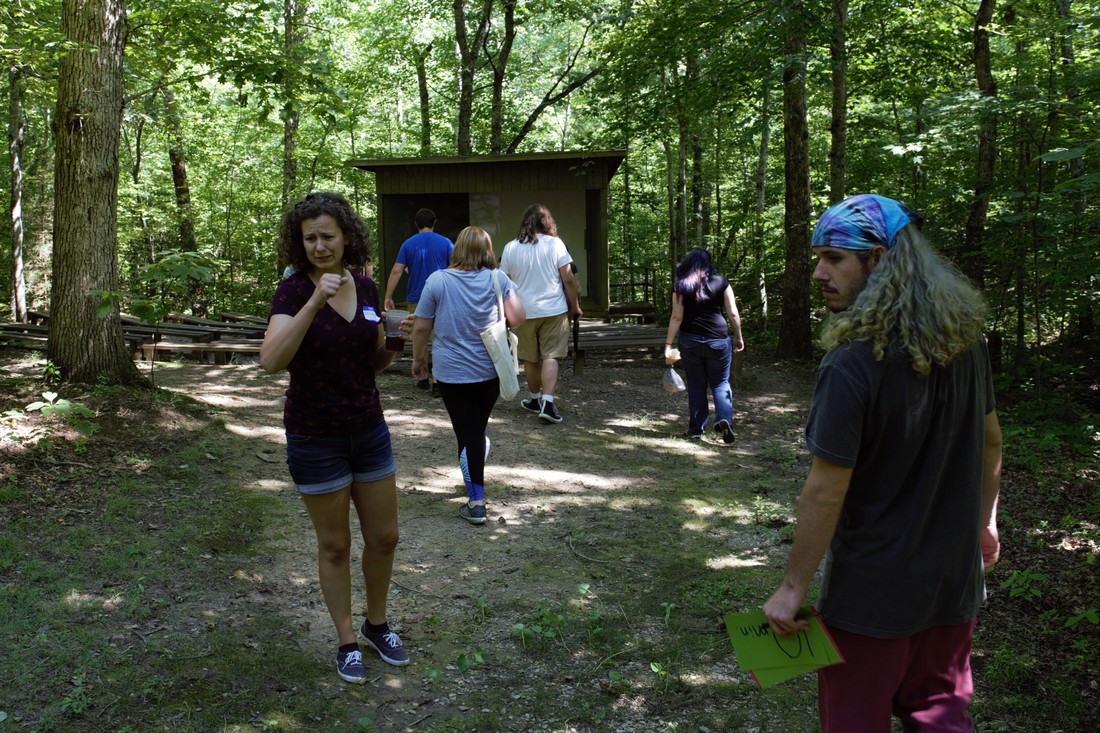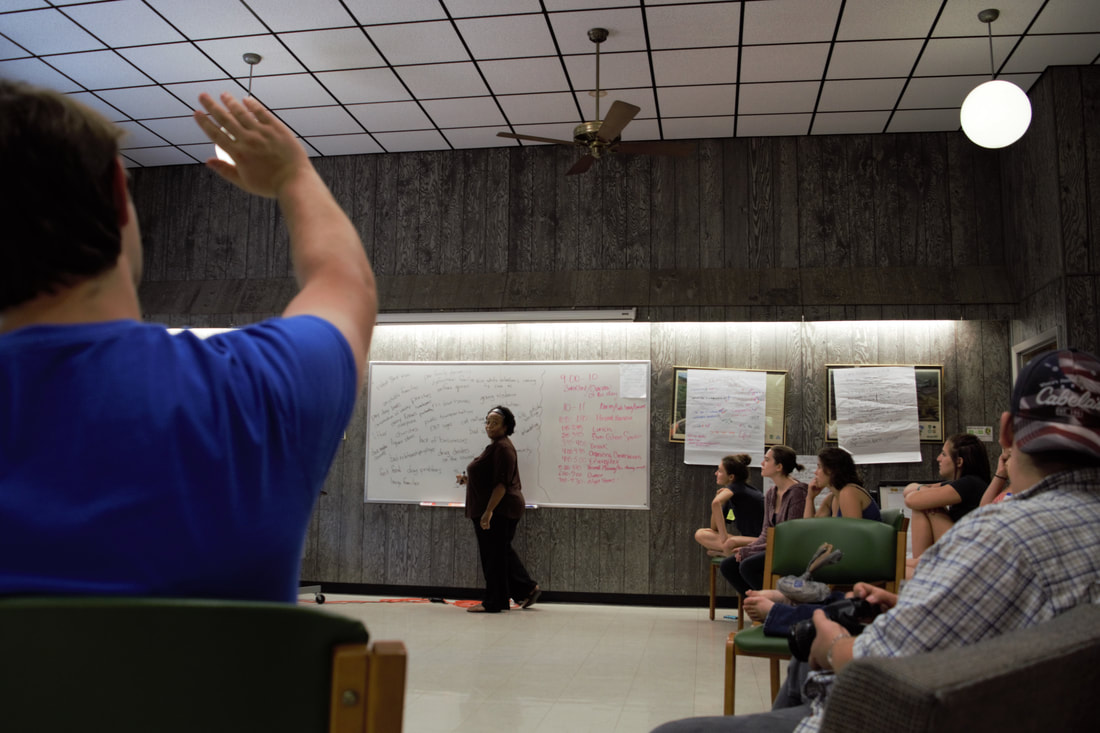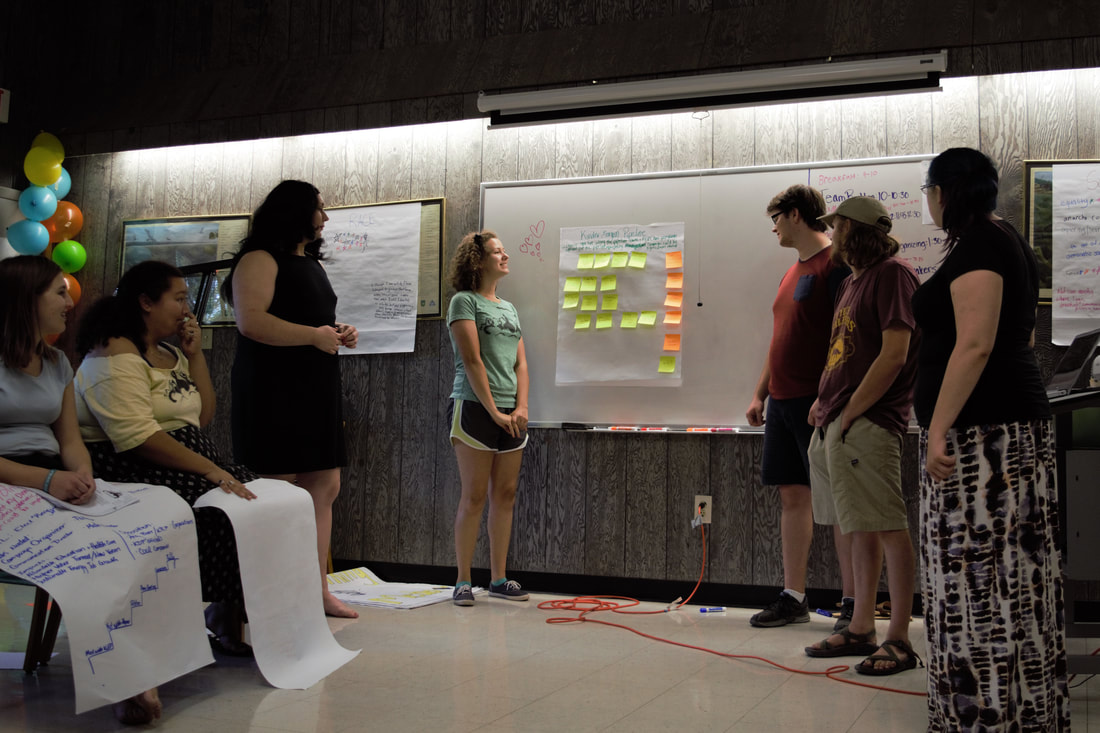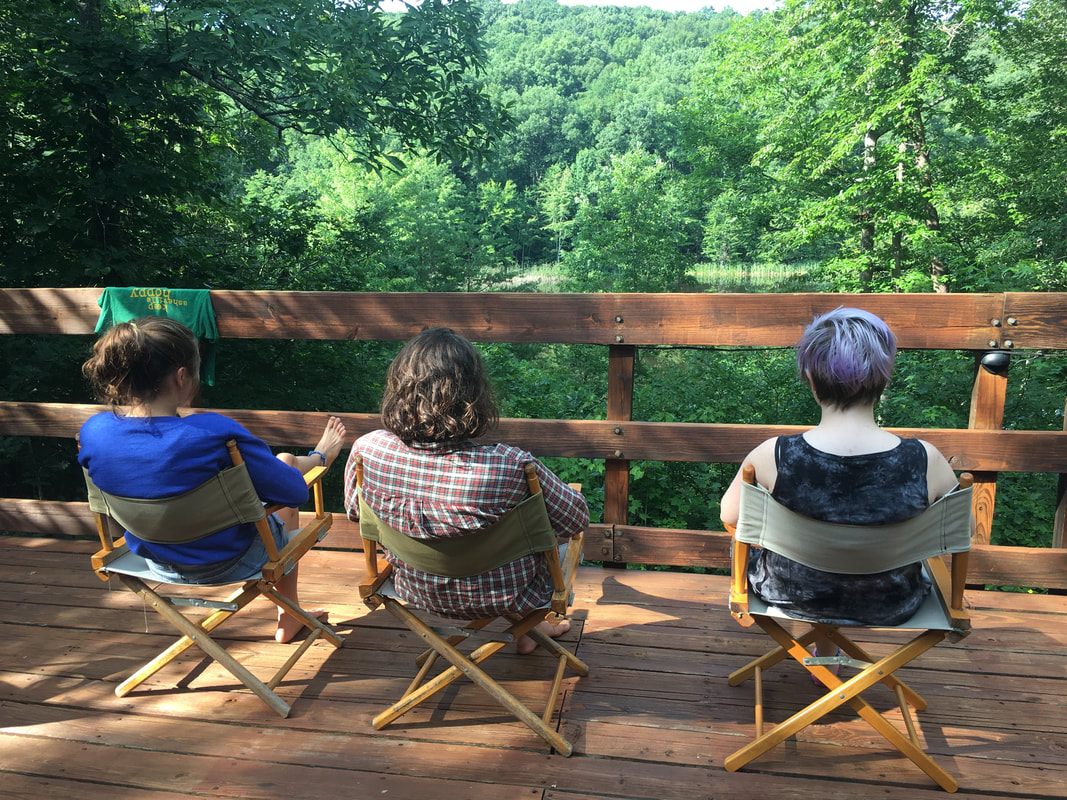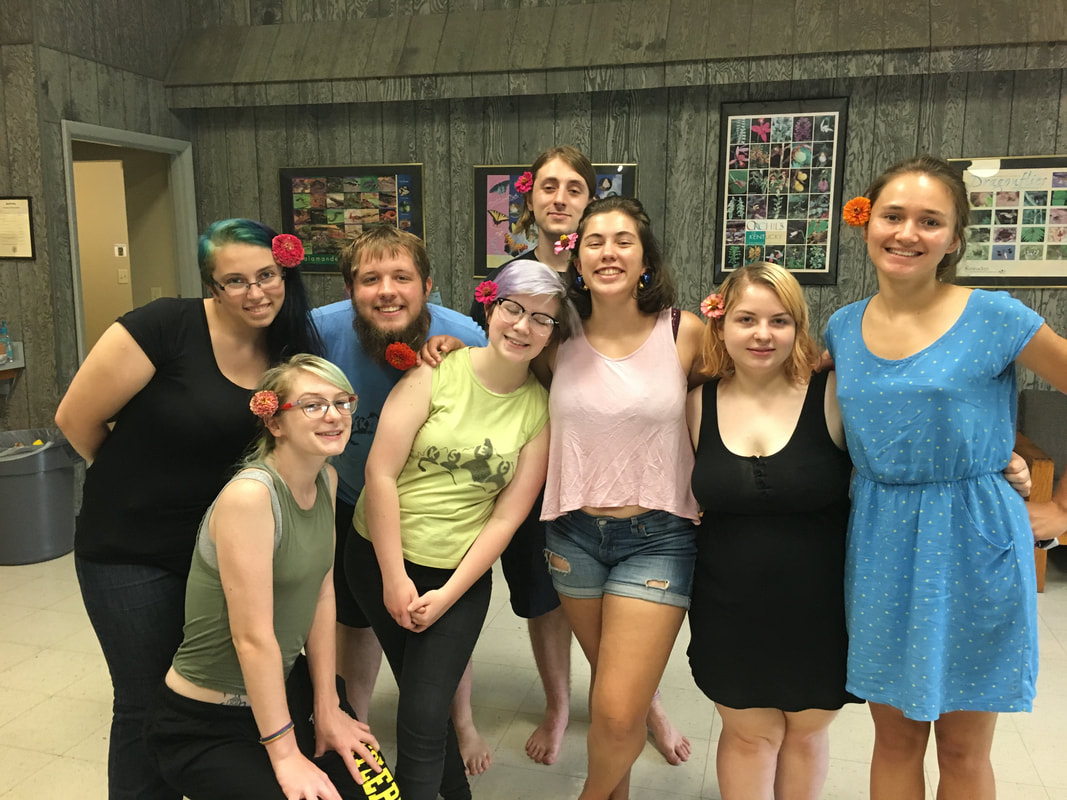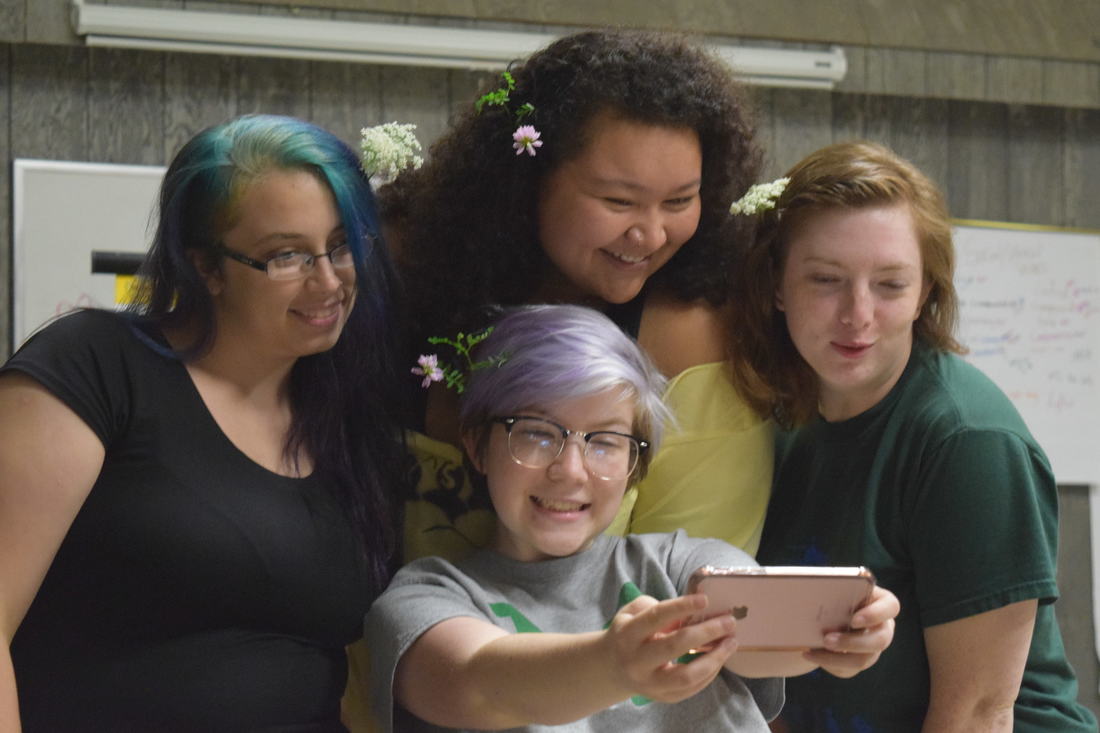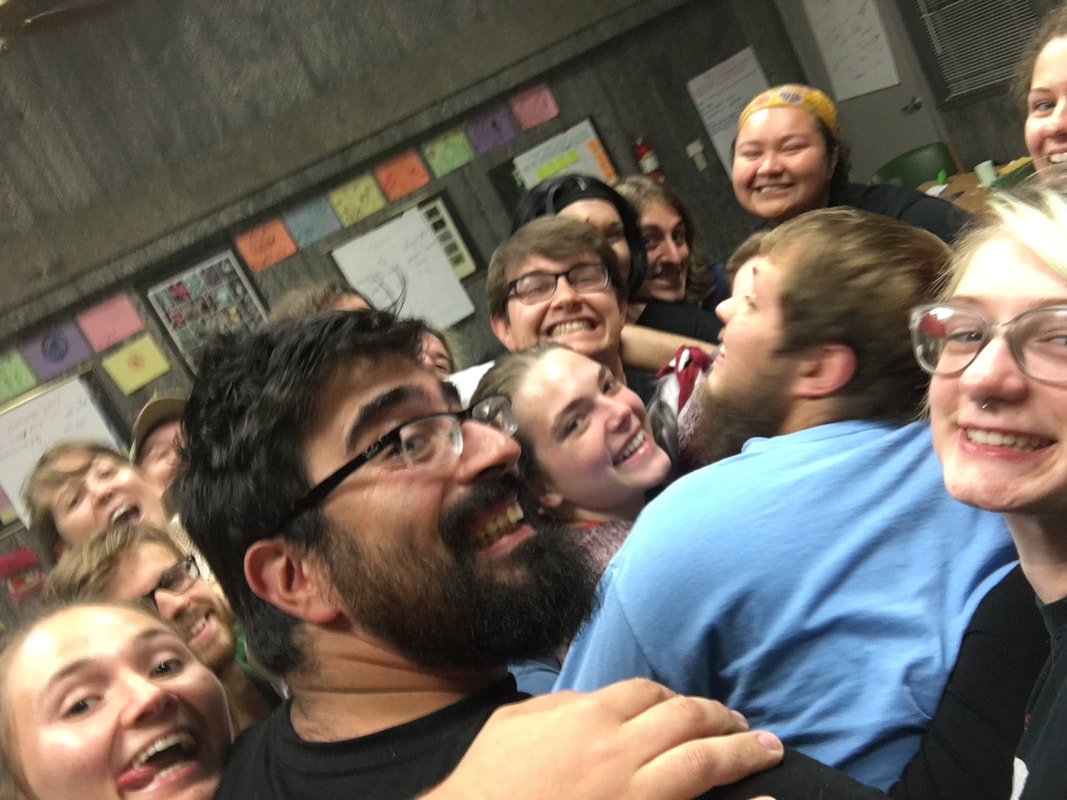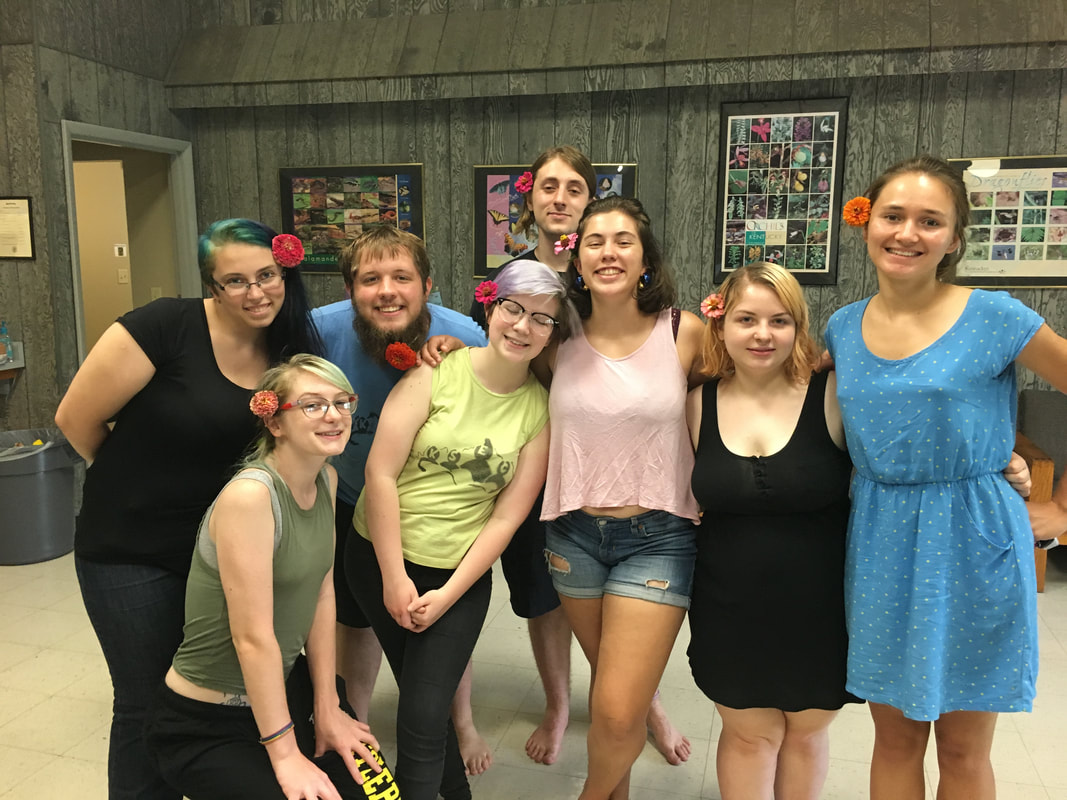|
By Jae Sledge, Catalyst Trainer Two of our trainers are getting ready to facilitate great conversations around how to use the skills they learned throughout the week. The group does an activity where we share one continuous string together and in the end, it holds up a balloon. This is to represent community, and many communities coming together to accomplish a common goal; Something we felt like we did that week. Participants like Sophia lead conversations and learn from each other. Not only that but they learn about each other, creating understanding friendships. Allison, one of the participants, worries about the safety of the baby toads. While others are on their way to the theater, she works on making sure people don’t step on them. Eboni Cochran came to speak about environmental racism. It affects her community in Louisville, called Rubbertown. This stresses the importance of intersectionality and inclusivity within the environmental movement. Participants put their skills to use in making an actionable plan for a campaign. They blew it out of the water with the limited time they were given! During downtimes, we tried to enjoy the environment and/or the company of those around us. Emma, Grace, and Libby look out over the pond. Flowers are cute and so are we! Friends taking selfies with some more flowers sprinkled in it. A big ol’ cinnamon roll hug at the end of the week with everyone who wanted to join in.
Just what the heart needed.
0 Comments
By Tyler Hill, Catalyst Trainer 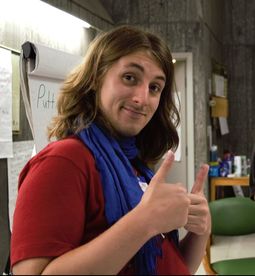 Tyler about to facilitate a training at Catalyst 2017. Tyler about to facilitate a training at Catalyst 2017. I’m the type of person who uses every available minute to think through a decision. I consider the benefits and scrutinize the downsides of every facet of a choice, giving every consideration its due twice over before finally settling on an option. While this process usually leaves me satisfied, often I find myself scurrying at 11:53 PM to fill out an application due at midnight. That’s how I spent the last minutes before 2017 arrived, applying to be a Catalyst trainer. I stressed over the decision to join the Catalyst training team from the moment I finished being a participant at the 2016 camp. That week in July had been one of the best in my life. I’d learned so much useful information which I immediately applied to my student organizations at university. More importantly to me, though, I connected with smart, kind, like-minded people who opened my eyes to new ideas and made me feel comfortable doing so. I’d left Catalyst ready to make a difference. Returning to the program as a trainer, however, seemed daunting in light of my circumstances. Spring semester 2017 was my last as an undergraduate at University of Kentucky, and I had two senior writing courses to complete on top of my day job. I didn’t think I would have enough time in the day to prepare trainings or raise money. In the end, I decided I could juggle those responsibilities. That’s how I came to hit “enter” on that application only a minute from midnight. Now that this year’s Catalyst has come and gone, I would like to help people like me who may be stressing over the decision to join next year’s team. A full accounting of the Catalyst process ought to give you an idea of what to expect. While my experience is mine alone, I think that those of you tempted to apply might find something of value in it. I would say to you potential future trainers that the process of creating Catalyst was fulfilling from the first team call in January to the last hug goodbye in July. Phone calls, as it happens, are a key part of the process. Communication among the directors and trainers is key to turning the Catalyst dream into a reality. My teammates and I spoke over the phone many, many times. There were the weekly team calls in which we talked big strategy -- how to raise funds, who to raise funds from, who to recruit, where to ask for donations of food, and so on. There were one-on-one calls between directors and trainers discussing individual tasks and roles we had adopted. There were the calls between trainers about the ways our roles interacted. Then there were the calls to edit curriculum and develop presentations for the trainings. There were even calls just to vent about how much work needed to be done. We as a team spoke to each other as much as we spoke to anybody else in our lives, even if we were spread all over Kentucky, America, and the world. (Yes, the world -- one of my teammates spent much of the process in another country and did a bang up job!) Naturally, I became well-acquainted with the team over those seven months. All of us were Catalyst alumni and had known each other prior to this job, but we nonetheless grew closer for it. I remember fondly an early call when we played “two truths and a lie.” We goofed around much longer than we should have, but I was smiling the whole time. It’s easy to laugh with my team -- they’re good, thoughtful people who I care for and who care for me in return. We faced challenges to the program and in our personal lives together, never hesitating to help each other when the demands of the job or life outside it proved too much to handle alone. That kind of camaraderie comes in part from working on something special. Building that connection with my team was vital for the work I had to do. I had never raised funds or recruited people for an event like this. As a shy person, asking people to give money or to come to a summer camp weren’t exactly skills I had developed. My teammates, however, had my back. We learned together and helped each other hone our efforts. I was able, for example, to go before my university’s student sustainability council and successfully request that they provide scholarships in the amount of $450 each for UK students to attend Catalyst. All of my team’s help paid off by giving me the confidence to do this and other vital tasks. When Catalyst finally came, I felt prepared. I had mostly finished my presentations, and I knew what needed to be done for those that were unfinished. I had received training to fulfill my roles at Catalyst. I knew the space and had information ready to accommodate the needs of the participants. All of the hours I had invested were paying dividends. Those dividends, in the end, were vast. As much as I felt the participants grew while at Catalyst, I myself became a better person. I saw my team rise to the challenge of running a program like Catalyst. I saw us come together for victories; I watched as we steadied each other when we failed. We improvised for unexpected problems, and we seized surprise opportunities. I had so much fun along the way. Even now, sitting at home after Catalyst has passed, I smile at the thought of all of the friends I’ve made thanks to joining this program. To those of you thinking about applying to be a trainer at Catalyst 2018, I will leave you with a few closing thoughts. If you become a trainer, you will sacrifice many hours in the pursuit of a perfect program. You will struggle. You will worry about your friends on the team. You may even stumble from time to time. The cons of this work may daunt you, so take all the time you need to think it through. In light of those considerations, however, I promise you this: as you are hugging your last friend from Catalyst before you go home, you will wish it had never ended. Catalyst is life changing for both participants and trainers and it will give you an entirely new and hopeful perspective of the world. I know that it has given me more than I can ever pay back. By Libby Kelly, KSEC, Western Kentucky University Hey folks!! Libby Kelly, Western Kentucky University delegate here, from the Kentucky Student Environmental Coalition (KSEC) sharing some thoughts on this upcoming semester!
If it’s not already, y’all need to put KSEC on your radar. This year my New Year’s Resolution was to not put activism on the backburner. I want 2016 to be a productive year for me in the realm of the things I care about, which is environmental and social justice. I feel confident in my ability to effectively organize for these causes with KSEC. Last semester was my first one at WKU. I came from Eastern KY University where I saw awesome teamwork and success in their environmental club which KSEC was an incredible catalyst for, and I was super eager to bring my KSEC enthusiasm from that group to the two WKU clubs I represent! I’m a delegate for the GreenToppers as well as the Coalition for Social Justice, which is especially exciting. Defending the earth is important, but it can involve even more than compassion for trees and animals. We all live in the environment, and we’re all affected by things like climate change, fracking, mountaintop removal, etc. As far as I see it, environmental issues ARE social justice issues. Already KSEC has shown huge support in my campus social justice club, and I’m excited to see how I can help CSJ campaign and organize as an environmental activist and through KSEC. Last summer KSEC launched an annual training program called Catalyst, that’s essentially a summer camp for activists. I was able to experience it last year and it was the most empowering and rewarding thing I’ve ever had in my time as an activist. I’m super stoked to be training at this year’s Catalyst and even more stoked since meeting and organizing with the rest of the team! It feels like every experience I have in this organization only teaches me more and more about my own potential and the potential of movements of collective action and organizing. In 2015, KSEC helped four campus win some really amazing campaign victories like a climate action plan, a green revolving fund, etc. I look forward to 2016 as another year for victories since meeting so many capable young people at Catalyst with positive visions for our future and the skills and heart to achieve them! |
AboutThe Young Kentuckian is a blog of the Kentucky Student Environmental Coalition where youth share their work and ideas for Kentucky's bright future. Follow The Young Kentuckian on Facebook!
Categories
All
Archives
March 2023
|
